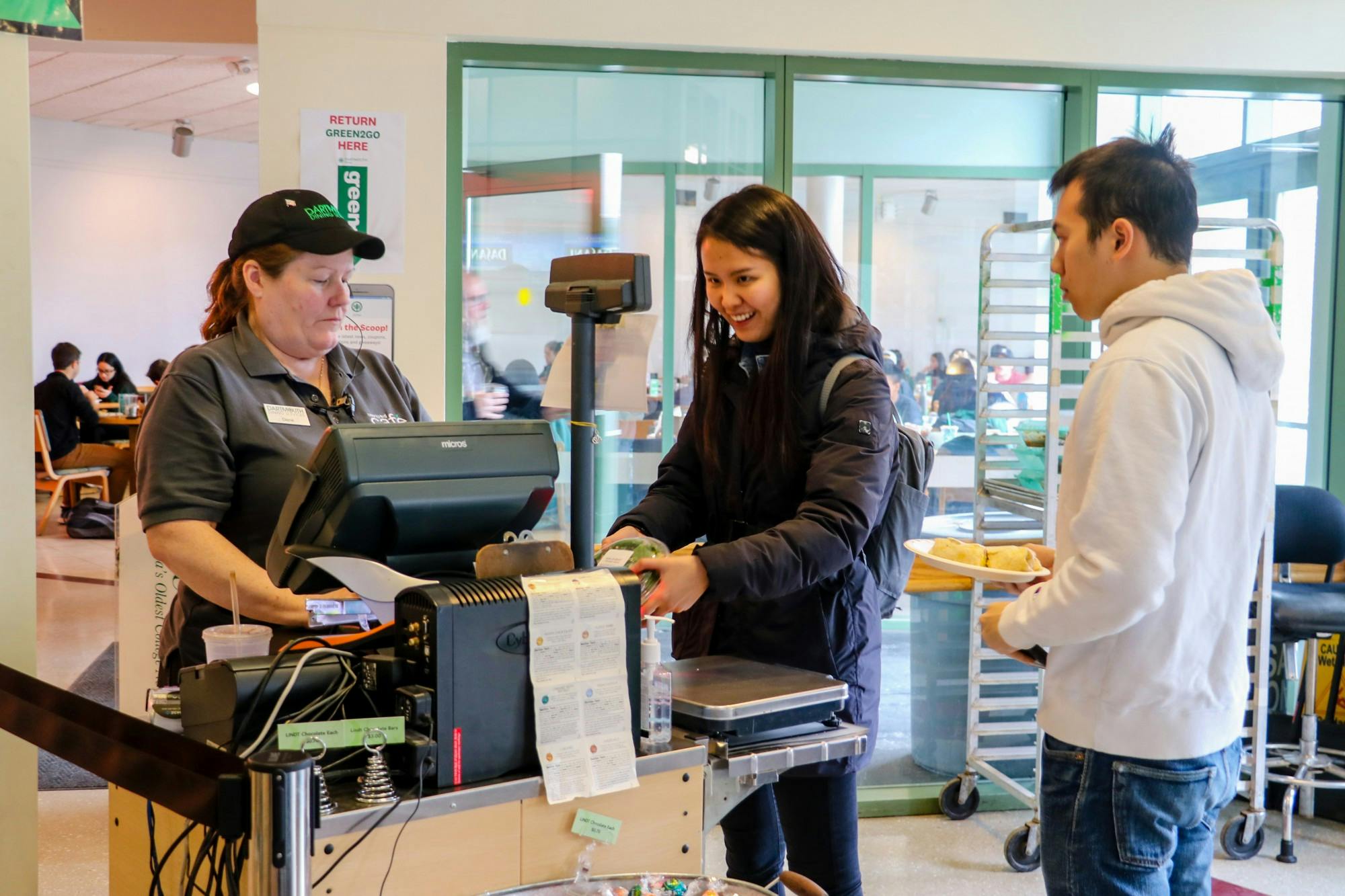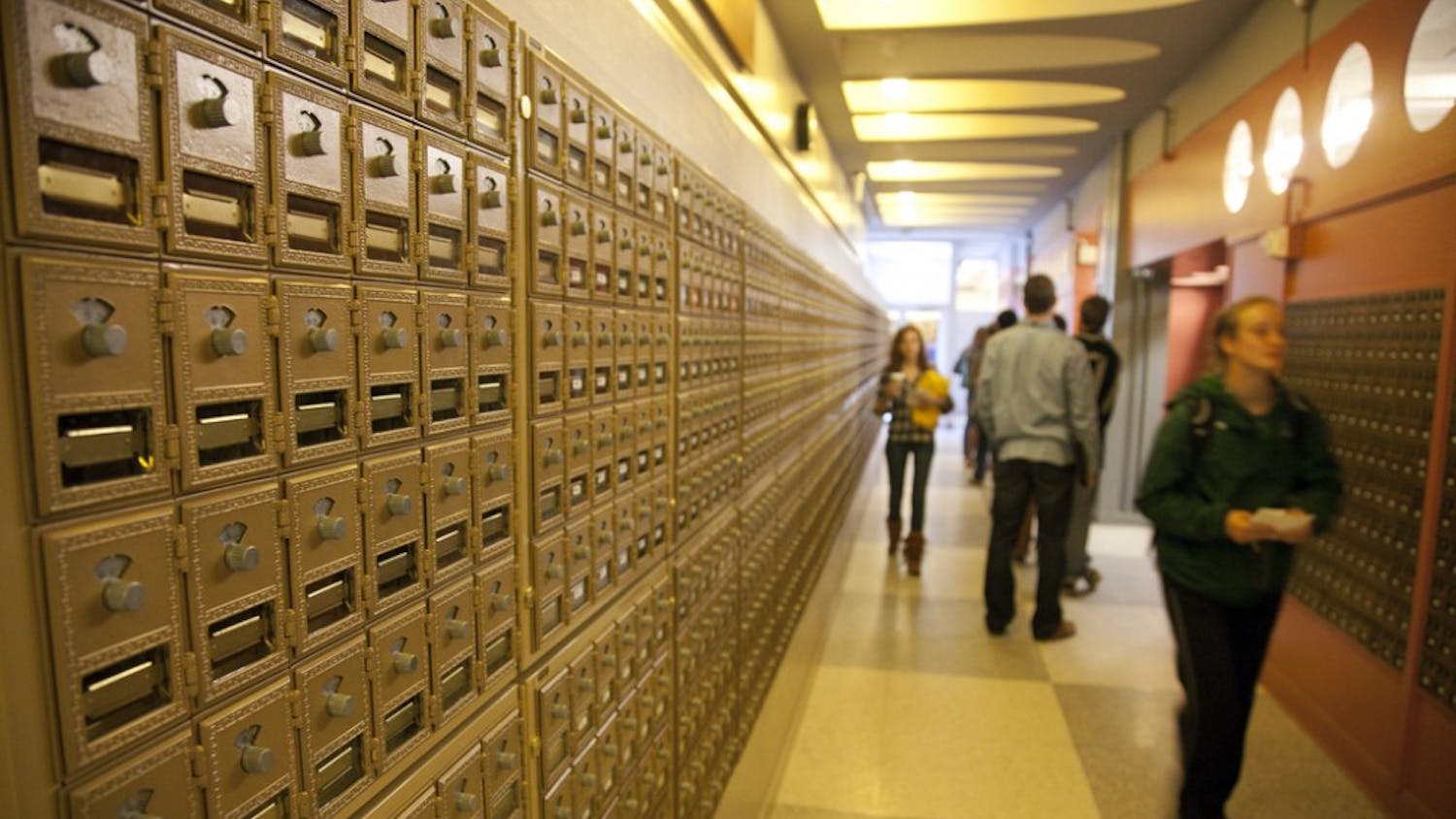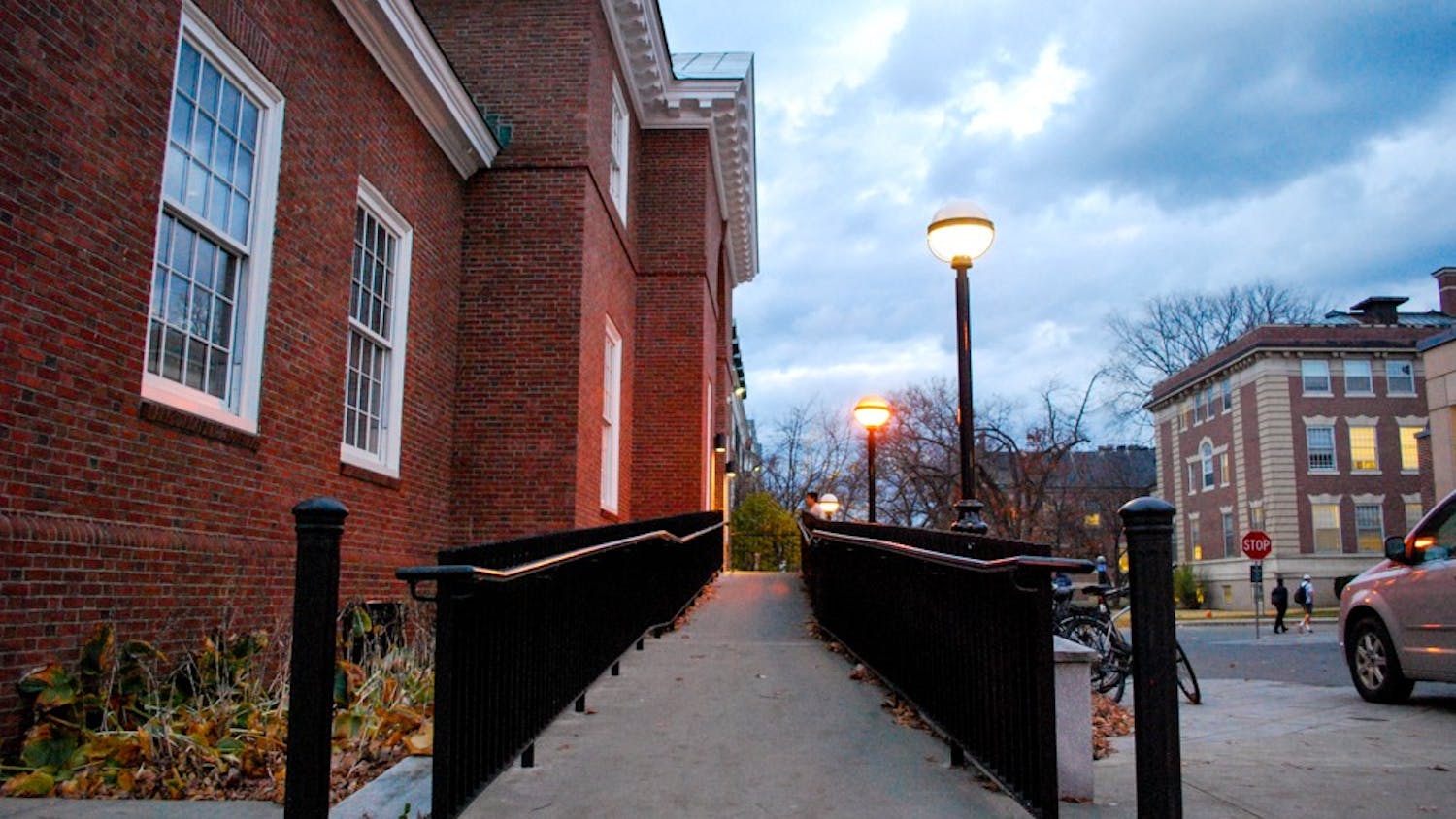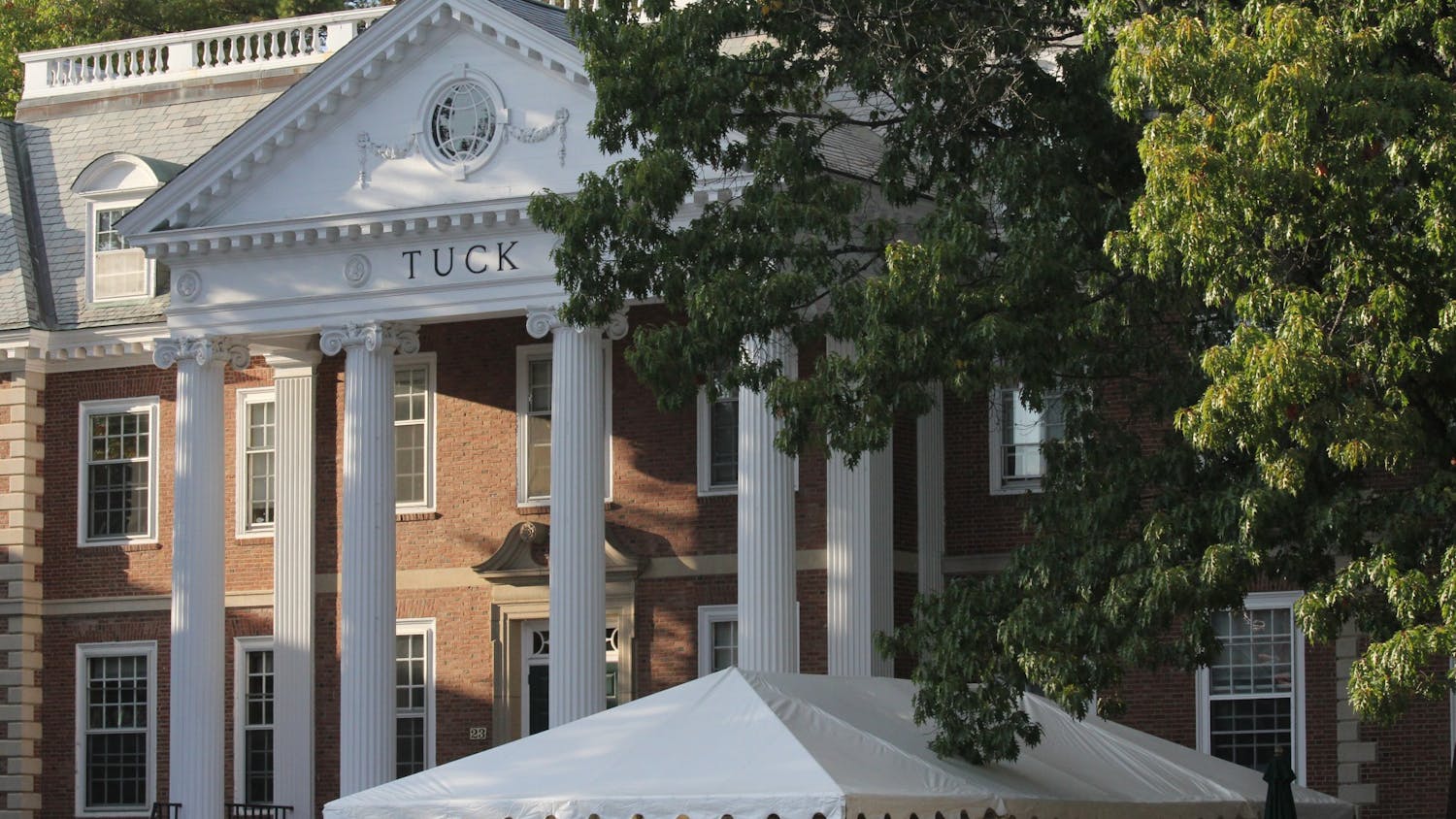Within Dartmouth Dining and the College’s custodial staff — both of which have experienced drastic changes due to COVID-19 — no employees have been laid off, furloughed or had their hours reduced so far. However, new shifts, new locations and new jobs have shuffled the lives of Dartmouth service employees.
While 15 campus services employees have been laid off, furloughed or had their hours reduced due to COVID-19-related budget cuts, vice president of campus services and institutional projects Josh Keniston declined to provide any details on the nature of the jobs affected. However, Facilities Operations and Management associate vice president Frank Roberts said there have been no layoffs or furloughs for union employees in FO&M, which includes custodial, maintenance and grounds staff. Additionally, Dartmouth Dining director Jon Plodzik confirmed that there have been no layoffs in Dartmouth Dining.
The College does not anticipate any more layoffs, furloughs or hour reductions for campus services employees as long as students are on campus, according to Keniston. Campus services includes a variety of responsibilities at the College, including Dartmouth Dining, FO&M, real estate and environmental health and safety.
The College offered voluntary furloughs to employees, but few seem to have opted in, according to president of the Local 560 Branch of the Service Employees International Union Chris Peck. Peck said he was aware of just one union member who took the offer. Staff members were hesitant to take the furlough because of the decreased pay and pro-rated benefits, Peck said. As a result, most staff have stayed on. Many — especially custodial and dining staff — have experienced changes in their hours or positions.
“On the whole, everyone in campus services, and really everyone that is on campus working, has been asked to do something different or new relative to COVID,” Keniston said.
Many custodial workers have been reassigned to a different shift, team or building. According to Keniston, one new team has been created on campus. The team manages custodial and maintenance work in quarantine and isolation dormitories. Individuals on this high-risk team underwent the necessary training and are equipped with the necessary protective equipment. Due to the heightened risk, workers receive higher pay, Peck said.
Four employees began in this team in July, and two additional employees are in the process of being hired, according to Roberts. Both current College employees and individuals outside the College were invited to apply for these jobs, though Roberts said the first four employees were already members of the College’s custodial team.
During the spring term, before the College formed the high-risk custodial team, the cleaning of isolation rooms was contracted to an outside company, Roberts said, adding that the outside company has not been involved since July.
While other custodial teams have not shifted to specifically high-risk work, their operations have changed to meet New Hampshire sanitizing requirements and accommodate changes in building usage. Keniston said that employees have been reassigned to different buildings, and cleaning schedules have been adjusted such that bathroom and high-touch surfaces are cleaned more frequently — as often as every two hours in some areas.
As a result, custodial schedules have changed multiple times, forcing multiple rebidding processes in which custodial staff pick their shifts by seniority after the release of an altered schedule. Peck said this has been a source of stress for members of the custodial teams.
“[It] is hard on the employee because they could end up on a different shift [or] different hours, and right now people [have to] take care of their kids,” Peck said.
Dorm cleaning now begins at 5 a.m., as opposed to the regular 7:30 a.m., so staff can clean before students wake up, Peck said. He added that staff have begun cleaning incrementally later as they have felt more comfortable potentially interacting with students amid low COVID-19 numbers.
Dartmouth Dining also saw staffing shifts due to COVID-19. During the summer term, dining employees assisted in preparing residence halls for students’ arrival, Keniston said. Dining employees are now back in dining roles, but operations look different than they did pre-pandemic. The Courtyard Cafe is closed, leaving the Class of 1953 Commons, Collis Cafe, Novack Cafe and Ramekin Cafe as the available dining locations for on-campus students.
Across dining locations, operations have been shifted such that facilities are cleaned more often, Plodzik wrote in an email statement. Additionally, he added that while many dining locations previously included self-service stations, dining staff now serve all food to students.
All Courtyard Cafe staff has been relocated to ’53 Commons to accommodate the increased labor necessary to safely serve food to students. Additionally, Collis Cafe has not been open for late night dining this fall, and staff have been moved to shifts earlier in the day.
Plodzik wrote there have been no layoffs due to especially high demand as dining employees keep up with health regulations during COVID-19.
“Our need is just too great for staff due to the current state regulations,” Plodzik wrote. He explained that all previously self-service stations must now be manned by dining employees.
Nonetheless, Peck said he is “concerned” about a time without any students on campus, for example, if the College were to mandate that all students leave over the winter interim. In such a situation, Peck said the College might furlough dining staff or ask them to use personal days. But he said he hopes the College would find a solution.
“If all the students left, it would be my hope that the College would step up,” Peck said.
Keniston said there will be no staffing cuts during the winter interim. Campus services employees will use that time to prepare for students’ return to campus and to perform necessary cleaning across campus, he said.
Despite shifted schedules and other agreements, Peck still fears someone might contract COVID-19. Without a sufficient alternative, many service staff continue to work despite the risk of COVID exposure, according to Peck.
However, Peck said he knew of only one union member at the College who tested positive. The worker contracted COVID-19 while traveling. He added that staff who have to quarantine will need to use their sick and vacation days, which vary based on a staff members’ seniority.
“A lot of people don’t want to use their time in case they do get sick or have to take care of their kids,” Peck said. According to Peck, the College is still considering a union proposal which would require that the College pay quarantining workers.
Overall, Peck praised the College’s reopening plan and staffing decisions.
“They really did it right compared to other schools out there,” he said. “I’m impressed.”





